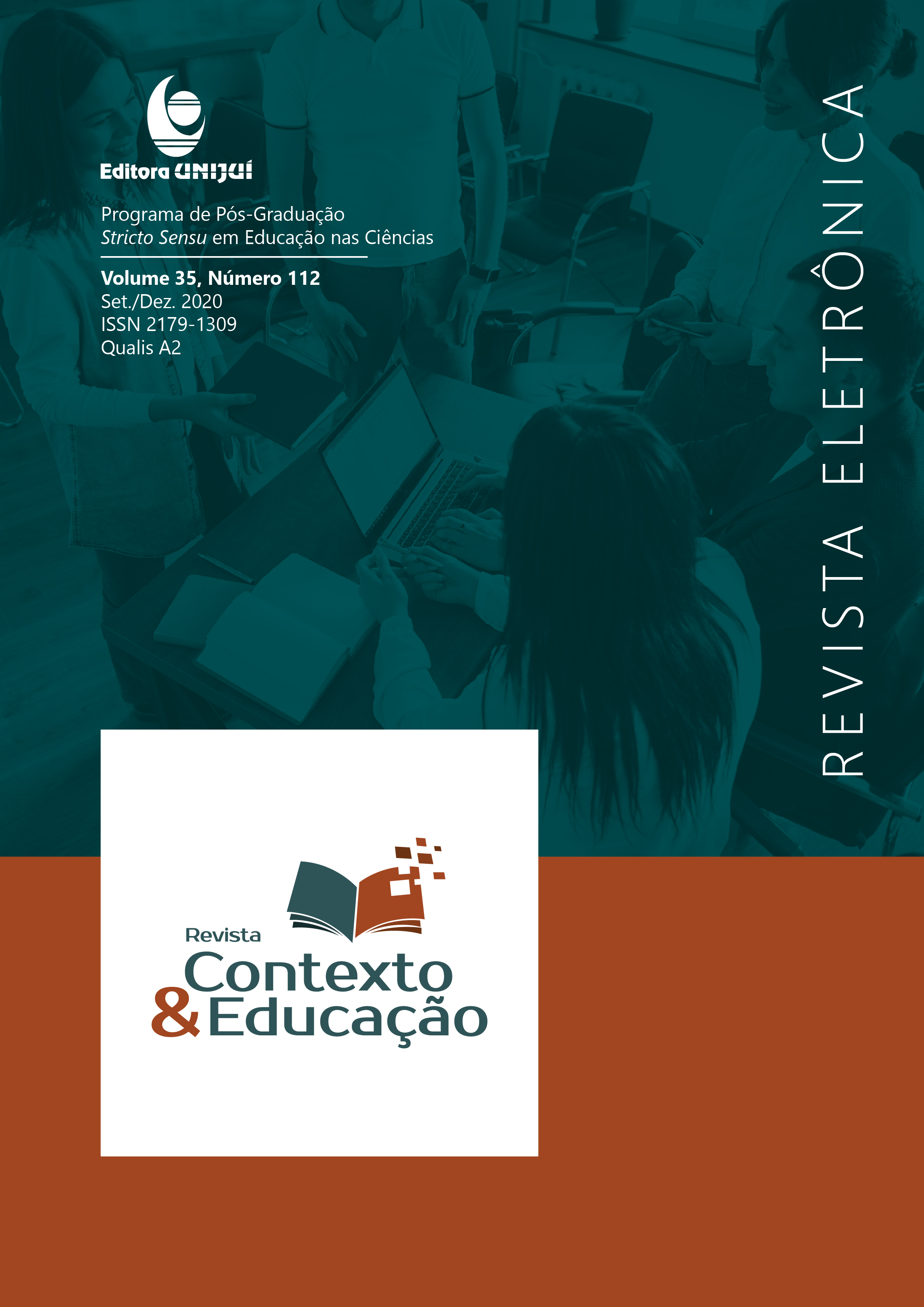EDUCAÇÃO PROFISSIONAL: ENTRE O LÁPIS E A FERRAMENTA. A INSURGÊNCIA DO MENOR APRENDIZ
DOI:
https://doi.org/10.21527/2179-1309.2020.112.366-383Palavras-chave:
Educação; Profissionalização; Menor; Insurgência.Resumo
Dados de uma pesquisa de cunho histórico educacional permitiram compreender como autoridades públicas, no período de 1909-1927, desenvolveram projetos educacionais objetivando promover o ensino profissionalizante para menores carentes em Curitiba/Pr. O período 1909-1927 foi estabelecido em razão da definição do conceito “menor” pelo Gabinete de Estatística da Polícia, bem como pela construção, em Curitiba, do Patronato Agrícola, primeira instituição correcional profissionalizante para menores. Examinou-se registros presentes nos periódicos da cidade de Curitiba e o regulamento do patronato. Do ponto de vista do método, parte-se dos sistemas de controle social como parâmetro, podendo-se assim examinar o menor com suas subjetividades. Dialogando com PERROT(1988), FOUCOULT(1977), BENJAMIN(1985), ARENDT(2016), THOMPSON(1987) e HAN(2019) permite examinar o que se passou naquele momento. Os dados coletados levam a compreender situações de insurgência infantil, que exteriorizam ordenamentos educacionais com seus repertórios valorativos e seus rigorosos mecanismos de cobrança. Oportuno ainda perceber no interior desses comportamentos, tidos como intoleráveis, a constituição de um entremeio crítico ao sistema regulador. Por essa brecha criada por esses aprendizes, foi possível perceber uma estrutura de ensino profissionalizante com práticas autoritárias, acarretando ensino penoso e excludente. Configuração contraditória, pois agravou a vulnerabilidade dessas crianças.
Downloads
Publicado
Como Citar
Edição
Seção
Licença
Ao publicar na Revista Contexto & Educação, os autores concordam com os seguintes termos:
Os trabalhos seguem a licença Creative Commons Atribuição 4.0 Internacional (CC BY 4.0), que permite:
Compartilhar — copiar e redistribuir o material em qualquer meio ou formato;
Adaptar — remixar, transformar e criar a partir do material para qualquer fim, inclusive comercial.
Essas permissões são irrevogáveis, desde que respeitados os seguintes termos:
Atribuição — os autores devem ser devidamente creditados, com link para a licença e indicação de eventuais alterações realizadas.
Sem restrições adicionais — não podem ser aplicadas condições legais ou tecnológicas que restrinjam o uso permitido pela licença.
Avisos:
A licença não se aplica a elementos em domínio público ou cobertos por exceções legais.
A licença não garante todos os direitos necessários para usos específicos (ex.: direitos de imagem, privacidade ou morais).
A revista não se responsabiliza pelas opiniões expressas nos artigos, que são de exclusiva responsabilidade dos autores. O Editor, com o apoio do Comitê Editorial, reserva-se o direito de sugerir ou solicitar modificações quando necessário.
Somente serão aceitos artigos científicos originais, com resultados de pesquisas de interesse que não tenham sido publicados nem submetidos simultaneamente a outro periódico com o mesmo objetivo.
A menção a marcas comerciais ou produtos específicos destina-se apenas à identificação, sem qualquer vínculo promocional por parte dos autores ou da revista.
Contrato de Licença (para artigos publicados a partir de outubro/2025): Os autores mantém os direitos autorais sobre seu artigo, e concedem a Revista Contexto & Educação o direito de primeira publicação.


